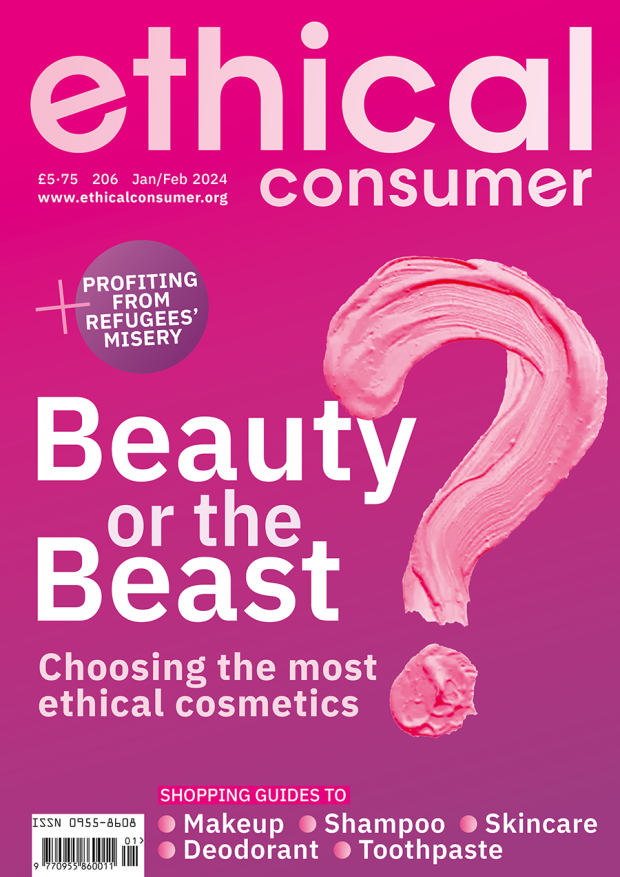Hair is an incredibly versatile accessory of our appearance and many spend a lot of money on it, with the average household spending 1.9% of their budget on hair and beauty. While the shape of our hair is usually taken care of by a professional, we wash and style it ourselves with a product we choose – usually based on its smell and the claims on its label.
In this article we discuss what else to pay attention to when choosing shampoo, including potential harmful toxins, the presence of unsustainable palm oil, and packaging.
Whether you're looking for a vegan, organic or chemical free shampoo, in solid form or liquid, there are plenty of options. Our guide features lots of smaller independent companies, as well as the big high street names – with nearly 90 brands in total. And with some brands barely scraping together enough points to score just above zero, this is one product where you can make ethical choices based on your requirements.
Update: The Body Shop
We removed the Body Shop from this guide when its private equity owner, Aurelius, called in the administrators in February 2024. It was bought by Auréa Group in September 2024. We will review its ownership and ethics when we review the guide as a whole.





